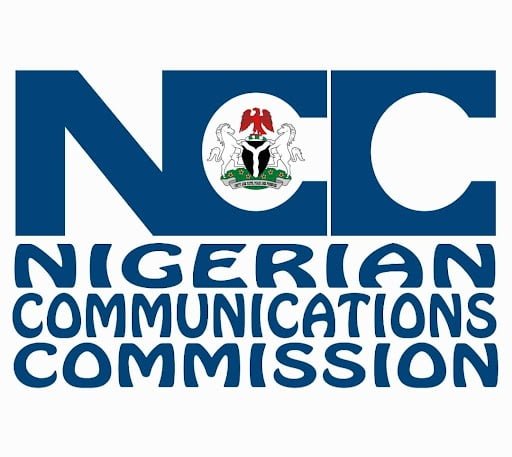It has been discovered that the carriers have slowed down their drive due to the false depiction of their sincere desire to obtain a little change in the end-user tariff on voice calls and data services.
Under the auspices of the Association of Licensed Telecom Operators of Nigeria (ALTON), the operators had applied to the Federal Government through the Nigerian Communications Commission (NCC) for permission to modify call and data rates in order to account for the country’s operating expenses.
Insiders said that the NCC’s refusal to comply with their demand was motivated by political expediency.
The telecoms had retaliated by saying that their services shouldn’t be utilised as a band-aid to lessen the effects of the nation’s ongoing economic difficulties.
However, a source over the weekend claimed that the operators chose to slack up on the push because they believed it was being misinterpreted as an effort to stir the populace against the government.
“Well, as you can see, we have temporarily suspended our push for adjustment for tariff hike because some elements within were sort of reading political meaning to it and we are business people; we are not politicians. All we are calling for is a sustainable tariff that will make us remain in business. The way things are going now, we may go back to the era of NITEL. I hope no Nigerian would want that to happen,” the source said.
The Association of Telephone, CableTv, and Internet Subscribers of Nigeria (ATCIS-Nigeria) and the National Association of Telecom Subscribers of Nigeria (NATCOM) have differing opinions regarding the MNOs’ proposal.
While ATCIS-Nigeria leader Sina Bilesanmi stated that the operators should first ensure quality service delivery and proper engagement with stakeholders before talking about any hike at all, NATCOM’s Deolu Ogunbanjo said that a slight increase that would not asphyxiate the subscribers would be a good thing considering that tariffs have not increased for over a decade.
“Considering that the current tariff has been existence for over a decade, a slight increase is not a bad idea. Service providers in other sectors have increased costs,” Ogunbanjo said.
Although Bilesanmi expressed sympathy for the operators’ situation, he insisted on receiving more. He stated, “We urge the operators to improve service quality and deepen stakeholders’ engagement to achieve win-win situations for all, while acknowledging the unease in the operating environment.”
A couple of years prior, the telecom companies suggested to the NCC that the call, SMS, and internet rates be raised by forty percent due to the growing expenses of conducting business in the nation.
Then, in a letter headed “Impact of the Economic and Security Issues on the Telecommunications Sector,” written to the NCC by ALTON, they proposed raising the price floor of calls from N6.4 to N8.95 and the price cap of SMS from N4 to N5.61.
The operators contended that the country’s cost of doing business had increased by 40%, having a significant financial impact following the country’s economic downturn in 2020 and the ongoing Ukraine/Russian conflict, which raised energy prices and increased operating expenditure by 35%.
The letter had read in part, “As the commission may be aware, the power sector under the supervision of its Nigerian Electricity Regulatory Commission of the power sector in November 2020 undertook a review of electricity tariffs to cater for the economic headwinds reported above.
“In view of the foregoing, ALTON considers it expedient for the telecommunications sector to undergo periodic cost adjustments through the commission’s intervention in order to minimise the impact of the challenging economic issues faced by our members.
Details are hereunder: “Upward review of the price determination for voice and data and SMS. Given the state of the economy and the circa 40 per cent increase in the cost of doing business, we wish to request for an interim administrative review of the mobile (voice) termination rate for voice; administrative data floor price, and cost of SMS as reflected in extant instruments.
“With respect to voice an SMS cost, ALTON respectfully requests the commission to consider a mark-up approach to address the upward price adjustment desirable for the industry. We have enclosed herein and marked as ‘Annexure 1’our proposal in that regard.
“For data services, we wish to request that the commission implements the recommendations in the August 2020 KPMG report on the determination of cost-based pricing for wholesale and retail broadband service in Nigeria. Excerpts from the report, are attached and marked ‘Annexure 2’ to provide a further illustration.
“In implementing the said recommendations, however, we recommend that the 40 per cent increase in the cost of doing business be factored in to arrive at a cost price per GB in view of the current economic situation.”
In order to assist telcos even more during this economic downturn, ALTON suggested that the NCC offer alternative methods of penalising operators in place of harsh financial penalties, extend the deadline for paying applicable regulatory levies and fees, and persuade the Federal Government to sign an executive order designating telecom infrastructure as a critical national infrastructure in order to reduce the expense of having to replace stolen and damaged infrastructure, among other things.
The body of the letter requested an upward adjustment of the MTR by forty percent in the annexure to one portion of the letter.
It said, “For large operators, the new interim MTR of N5.46 from N3.90 reflecting 40 per cent increase in the cost of business.
“For small operators, new interim MTR of N6.58 from N4.70 reflecting 40 per cent increase in the cost of business.”
Not so long ago, the MNOs, citing the high cost of doing business, revived their effort to raise the end user pricing of telecom services in the nation.
Additionally, they had requested President Bola Tinubu to completely repeal the recently halted 7.5% value added tax (VAT) on automotive petrol oil (AGO), which is the main fuel used to power the telecom industry when the national grid is unreliable.
In a report to the House Committee on Communication in Abuja, ATON stated that whereas other economic sectors have seen price increases, the telecom industry has not.
The cost of conducting business in the nation has increased significantly in the previous few months, according to ALTON Chairman Gbenga Adebayo. These factors include macroeconomic headwinds like inflation and currency devaluation; persistent challenges obtaining foreign exchange (forex) at a reasonable rate; growing energy expenses; the growing expense of securing telecommunications facilities and field personnel in the face of escalating insecurity; and many more.
“Notwithstanding the foregoing, the pricing regulatory framework has not been reviewed to account for changes in macroeconomic conditions and reflect current cost profile of operators.
“As such, ALTON’s members are unable to price services at a sustainable rate.
“Consumer prices in other sectors have seen a steep rise over the last six years as they adjust to reflect macro-economic realities. However, telco prices have remained flat and even declined. Contrary to the price trends in other sectors, telcos have had to adjust for the macroeconomic headwinds by an increasing erosion of margins; other highly regulated sectors such as power and insurance have implemented price increases over the last year.
“Insurance prices have risen 200per cent with power raising prices by over 40per cent. Telecommunications is the only sector that has not experienced a pricing regulatory framework review raising prices notwithstanding local and global macroeconomic realities,” he said.
Adebayo claimed that in addition to undermining investor trust and exhausting investible capital that could have been used to optimise infrastructure for better service delivery, this also poses a threat to the sector’s ability to continue operating sustainably.
In order to secure executive and legislative action on the designation of telecom infrastructure as Critical National Infrastructure (CNI) and the criminalisation of malicious site sealing, access denials, and the wilful or negligent destruction of telecom infrastructure, he urged the Committee to foster collaborative partnerships with key stakeholders, such as the Office of National Security Adviser (ONSA).
He contended that an Executive Order or an appropriate modification to the Cybercrimes Act could accomplish this. He reminded the Committee that the previous National Security Adviser (NSA) had attempted to obtain Presidential permission for an Executive Order (EO) and asked them to “respectfully liaise with the current NSA to bring to fruition the EO on CNI.”
Additionally, he worked to raise awareness and advocate for state governments to adopt the harmonised RoW charge of N145/Linear Meter, which was approved by the National Economic Council in 2019. He also worked with the Presidential Committee on Fiscal Policy and Tax Reforms to work towards the elimination of the excise duty on telecom services, which is currently suspended, and to work towards resolving the ongoing issue of multiple taxation in the Nigerian telecommunications sector.
Regarding the harsh diesel price and how it affects operating expenses, he stated that ALTON is happy with the Federal Government’s recent announcement that the 7.5% VAT on diesel will be suspended for the next six months.
“This is a welcome development coming from the fact that in August 2023, we were paying, on average, N854.32 per liter, compared to the lower cost of N786.88 per liter recorded in the same month of the previous year. The 7.5per cent VAT on diesel has pushed pump prices to N900 at least and N950 at the maximum across Nigeria as at today.
“The impact of this increase is dire for telecommunications operations, particularly for our members in the colocation segment. The 300per cent increase in diesel cost which was implemented at the beginning of the year, humongous indebtedness in the industry, lack of access to and increased rate of foreign exchange to service their operations, dire levels of insecurity across the country with increased theft and damage to our members sites, have all prevented our members from running their business efficiently and profitably.
“This new challenge of the introduction of the 7.5per cent VAT will not only further impact our members operating capital, but it will also erode their profit margins, discourage investments, stifle growth, result in loss of employment and ultimately dovetail in a progressively reduced GDP,” Adebayo told the lawmakers.
He praised President Tinubu for giving the six-month grace period, but added that it would be preferable to extend it indefinitely by ordering a suspension of the 7.5% VAT beyond the initial six months. “Everyone will experience positive effects on the industry and economy,” he stated.
He also emphasised the industry’s main issue, which is the Federal Capital Development Authority’s (FCDA) failure to grant a build permit for the roll-out of infrastructure.
“The provision of telecoms service in the Federal Capital Territory (FCT) Abuja has been hampered by the refusal of the Federal Capital Development Authority (FCDA) and Abuja Metropolitan Management Council (AMMC), to grant permits to our members to build sites. Despite concerted engagement, FCDA has maintained that due to the need to maintain the Abuja Master Plan, it will not grant approval to our members to build new sites in the Federal Capital Territory, Abuja. Telecoms services depend on terrestrial infrastructure and without these infrastructure in place, the quality of services cannot be guaranteed.
Our members are worried about this development because it will have a big impact on their capacity to meet regulatory requirements and customer expectations in the FCT, especially considering the enormous investment made in the deployment of telecom infrastructure in the FCT. Due to the FCT’s growing population, its status as the seat of government, and the location of various important government functions, our members have not been able to coordinate the deployment of infrastructure with the region’s growth patterns and operational needs.
Telecommunication infrastructure service providers (TSPs) and mobile network operators (MNOs) have been working together to close the gaps in Quality of Service (QoS), as evidenced by poor service reception in some areas of the Federal Capital Territory (FCT). This has led to dropped calls and complaints of poor service.
“Despite concerted efforts of our members to address the coverage requirement gaps through optimization and other short-term measures, these coverage gaps exist of the view that FCDA and AMMC’s current position will not in the long-term enable us to provide the desired Quality of Service (QoS) levels in the FCT.
“While we understand that AMMC may have justifiable basis for its decision to put the granting of permits and approvals on hold as stated in its circular, we also believe that there should be a possibility of working out a solution that will enable our deployment of required telecommunication infrastructure within the FCT- without prejudice to the masterplan,” he said.
In the words of the speaker, “ALTON respectfully states that it is not guaranteed that the FCT will receive the necessary levels of telecommunications services in the absence of adequate infrastructure deployment.
“As a result, we kindly ask that you use your good office to liaise with the FCDA to agree & authorize suitable locations for new site built by our members.
“The House Committee on Communications should as a matter of urgency intervene so that permits can be issued to our members to deploy infrastructure to cater for the communication needs of the FCT and its environs.”




